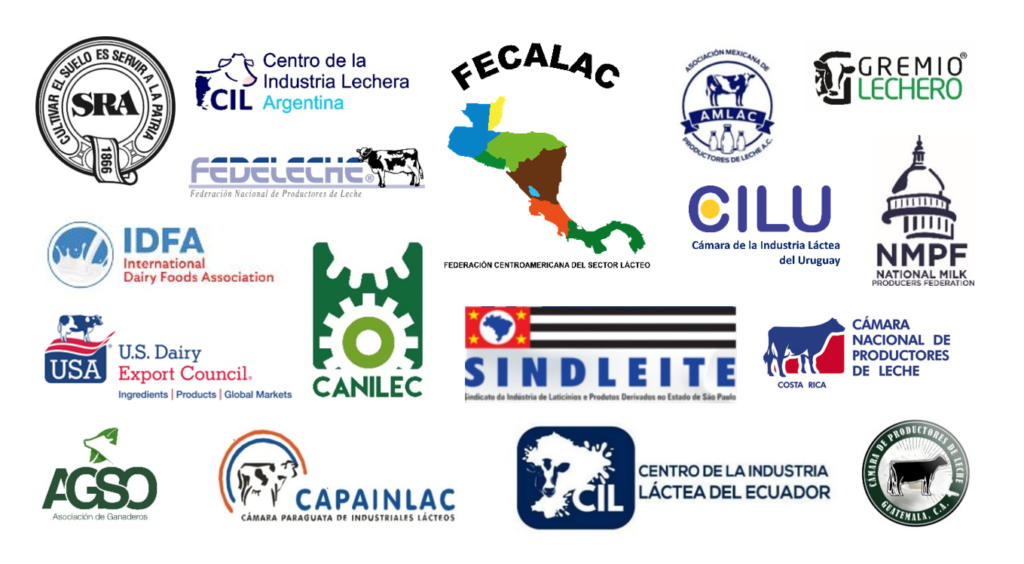As the European Union (EU) is poised to begin government-financed intervention purchases of skim milk powder (SMP) and butter, dairy farmers and processors in key dairy-producing countries around the world are calling on the EU to avoid the market-distorting practices that have significantly harmed them and the broader global dairy market in the past.
A coalition of dairy organizations from Argentina, Brazil, Chile, Costa Rica, Ecuador, Guatemala, Mexico, Paraguay, Uruguay and the United States joined together in urging the EU not to repeat the inventory-building and extended market-price suppression it engaged in just a few short years ago.
Exporting large quantities of government-purchased SMP and butter at below-market rates onto the world market will prolong the deeply challenging environment under which dairy sectors are operating worldwide. The EU intervention program would artificially distort prices for an extended period and displace commercial competition just as the world begins to recover from the immediate impacts of the COVID-19 pandemic. The groups instead urge the EU to adopt measures that further spur consumption within the EU and encourage its producers to implement appropriate production practices to survive during this difficult time.
A coalition representing dairy industries from around the world issued the following joint statement:
“The European Commission must avoid dumping government-purchased SMP and butter on the world market and implementing policies that undermine global dairy markets under the guise of protecting its farmers. The EU’s market-distorting practices are harmful enough during normal operations. If used in the wake of the COVID-19 pandemic, which has dramatically eroded dairy prices, they would be disastrous to the world dairy market by prolonging the current crushing economic conditions. Global buyers of SMP and butter will have little incentive to bid up prices as long as the EU Government holds significant quantities in Intervention.
“It’s critical that the EU act now to put a long-term plan into place regarding how to handle its government-incentivized stockpiling given that the EU has a demonstrated history of dumping intervention purchases in a way that disrupts the world dairy market. The EU intervened in 2016-17 and held the equivalent of 16 percent of the global SMP market in government storage. It subsequently released the product on the world market over the next two years, unfairly undercutting international prices and harming the global dairy industry.”
“Farmers and dairy processors in our countries and many others around the globe are already in the fight of their lives, working hard every day to help keep the world well-nourished through this crisis. We are all dealing with great enough challenges already in our own markets. If the EU does not commit to avoid distorting global markets by dumping their excess intervention stocks onto the world market just as dairy sectors begin to recover, the more farmers and processors outside the EU could be forced to close their doors. We encourage the EU to implement policies that support greater utilization of dairy products with the goal to increase consumption, particularly with the consumers impacted most by the covid-19 outbreak.”
The groups issuing the statement include:
Argentina
Sociedad Rural Argentina (SRA)
Centro de la Industria Lechera Argentina (CIL)
Brazil
Sindicato da Indústria de Laticínios e Produtos Derivados no Estado São Paulo (SINDLEITE)
Central America
Federación Centroamericana de Productores Lácteos (FECALAC)
Chile
Federación de Productores de Leche (FEDELECHE)
Costa Rica
Cámara Nacional de Productores de Leche de Costa Rica (CNPL)
Ecuador
Centro de la Industria Láctea del Ecuador (CIL)
Asociación de Ganaderos (AGSO)
Guatemala
Cámara de Productores de Leche (CPL)
Mexico
Asociación Mexicana de Productores de Leche, A.C. (AMLAC)
Cámara Nacional de Industriales de la Leche de México (CANILEC)
Confederación Nacional de Organizaciones Ganaderas (CNOG)
Paraguay
Cámara Paraguaya de Industriales Lácteos (CAPAINLAC)
United States
International Dairy Foods Association (IDFA)
National Milk Producers Federation (NMPF)
U.S. Dairy Export Council (USDEC)
Uruguay
Cámara de la Industria Láctea del Uruguay (CILU)







